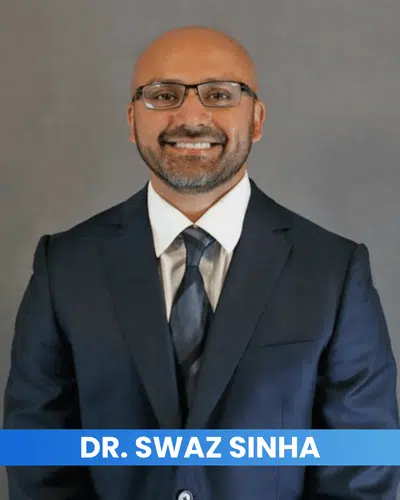Axis Spine And Orthopedics - Questions
Wiki Article
What Does Axis Spine And Orthopedics Mean?
Table of ContentsHow Axis Spine And Orthopedics can Save You Time, Stress, and Money.Getting My Axis Spine And Orthopedics To WorkEverything about Axis Spine And OrthopedicsAxis Spine And Orthopedics - An Overview
An orthopedic surgeon is a physician that specializes in treating problems of the bones, joints, and connective tissues, and ensuring you maintain a healthy and balanced bone and joint system., we have highly certified orthopedic cosmetic surgeons that are qualified of dealing with patients of all ages. I got entailed in research throughout my initial year of clinical college, and I started making links with orthopedic cosmetic surgeons early on.
Discuss the post-operative treatment strategy with your specialist. Arrange for transportation to and from the healthcare facility on the day of surgery.
More About Axis Spine And Orthopedics

Your medical professional will supply plenty of info regarding post-operative care, consisting of just how to remain clean and keep the surgical area clean. Adhering to these ideas can prepare you physically and emotionally for your orthopedic surgery. Remember to preserve a favorable expectation and trust your medical team's know-how, adding to a smoother recovery process.

No one anticipates you to recognize anything, so do not try to remember a bunch of random truths. Otherwise, joint discomfort can actually mess up your life.
Common conditions treated by orthopedic doctors are: Cracks and Bone Injury: Broken bones and other injuries from accidents or effects. Bone Cancer Cells: Lumps in the bones. Orthopedic Trauma: Extreme injuries affecting bones, joints, or soft tissues.
Orthopedic cosmetic surgeons carry out a selection of treatments to help individuals with musculoskeletal concerns. Aside from these subspecialists, some orthopedic specialists are generalists. Training might consist of traditional medical school (a physician of medication level, or MD)or osteopathic education and learning (a doctor of osteopathy degree, or DO) - axis spine.
The smart Trick of Axis Spine And Orthopedics That Nobody is Discussing
Next, they finish an orthopedic residency. It's normally five years and supplies hands-on learning in a medical setup. Appointments often consist of: Discussing your signs and symptoms, clinical background and way of living.Therapy recommendations. Some conditions need additional imaging, like a CT check or MRI for more extensive views of the excruciating location. Your orthopedist will certainly advise therapies to reduce symptoms up until you receive a medical diagnosis. Orthopedic cosmetic surgeons specialize in nonsurgical and medical techniques. For specific types of orthopedic injury or genetic problems, surgical procedure is often the first line of therapy. For many various other conditions, orthopedists attempt nonsurgical view it treatments. It may take greater than one sort of therapy to accomplish enduring relief. Picking the right is important for effective medical outcomes and improved client healing. With a vast array of alternatives available out there, it can be frustrating for both doctors and patients to make an informed decision. The leading 5 factors to consider when choosing an orthopedic implant are surgical compatibility, cost-effectiveness, considerations for revision surgery, patient-specific factors, and the layout and development of the implant. They are available in different shapes, sizes, and materials, each serving a specific purpose based on the client's needs. Recognizing the essentials of orthopedic implants is crucial before diving into the decision-making process. One of the leading factors to consider when picking an orthopedic dental implant is its compatibility with the surgery. Various implants are created for different surgical strategies and techniques. The orthopedic implant should be especially created to fit the individual's anatomy and ensure stability throughout the healing procedure. Surgical compatibility entails elements such as dental implant size, shape, and product. The success of orthopedic treatments relies greatly on the correct choice and positioning of implants that work with the client's makeup and medical background. By focusing on person safety and security and wellness, orthopedic specialists can achieve effective outcomes and give the finest of treatment to their clients. Surgeons need to very carefully think about the biomechanical residential properties of the implant and just how it will certainly incorporate with the individual's bone framework. This will add to far better medical outcomes, decreased issues, and shorter recovery time. When selecting implants for a patient, it is essential to think about a range of patient-specific factors that can influence the success and end result of the procedure. These variables encompass the individual's age, bone top quality and quantity, dental health and wellness condition, case history, way of living behaviors, and visual choices. For older clients with compromised bone thickness, shorter implants or grafting procedures may be helpful to provide the needed stability and support. 3. Is the dimension of the orthopedic dental implant an important factor to consider? How does it impact the surgery and the client's recuperation? Yes, the dimension of the dental implant is essential as it has to match the individual's structure for correct fit and functionality. 4. Can the client's age and way of living play a role in choosing the most ideal orthopedic implant? Absolutely. Just how does the expense of an orthopedic implant factor into the decision-making procedure, and exist methods to stabilize high quality with cost? The expense of the implant is an essential consideration, but it should not be the single determining variable. Stabilizing high quality with cost involves weighing different dental implant alternatives 'long-lasting advantages and prospective issues. Report this wiki page